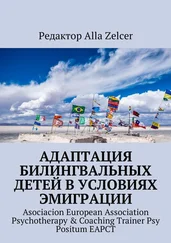James Walsh - Psychotherapy
Здесь есть возможность читать онлайн «James Walsh - Psychotherapy» — ознакомительный отрывок электронной книги совершенно бесплатно, а после прочтения отрывка купить полную версию. В некоторых случаях можно слушать аудио, скачать через торрент в формате fb2 и присутствует краткое содержание. Жанр: foreign_prose, psy_theraphy, foreign_edu, foreign_antique, на английском языке. Описание произведения, (предисловие) а так же отзывы посетителей доступны на портале библиотеки ЛибКат.
- Название:Psychotherapy
- Автор:
- Жанр:
- Год:неизвестен
- ISBN:нет данных
- Рейтинг книги:4 / 5. Голосов: 1
-
Избранное:Добавить в избранное
- Отзывы:
-
Ваша оценка:
- 80
- 1
- 2
- 3
- 4
- 5
Psychotherapy: краткое содержание, описание и аннотация
Предлагаем к чтению аннотацию, описание, краткое содержание или предисловие (зависит от того, что написал сам автор книги «Psychotherapy»). Если вы не нашли необходимую информацию о книге — напишите в комментариях, мы постараемся отыскать её.
Psychotherapy — читать онлайн ознакомительный отрывок
Ниже представлен текст книги, разбитый по страницам. Система сохранения места последней прочитанной страницы, позволяет с удобством читать онлайн бесплатно книгу «Psychotherapy», без необходимости каждый раз заново искать на чём Вы остановились. Поставьте закладку, и сможете в любой момент перейти на страницу, на которой закончили чтение.
Интервал:
Закладка:
During the state of contraction the pseudopod of the neuroglia cells are drawn in; that is to say, the protoplasm of the cells absorbs the processes, and so the true nerve cells and nerve fibrils which were separated from each other by the interposition of neuroglia come into contact. By this mechanism the brain passes from the condition of rest into one of activity. These neuroglia contractions may, particularly in certain parts of the brain, occur automatically. Often, however, they are produced by the action of the will, which, in this manner is able to influence the definite groups of neuroglia cells. As the result of this influence of the will the association of intellectual operations can be guided in various directions. The unusual course that the association of ideas sometimes takes, the flow of words and of thoughts at certain moments, the passing difficulty of speech, the recurrence of tormenting thoughts, the disappearance of expressions or ideas from the memory, even the increase of mental activity and of every kind of motor reaction as well as many other phenomena of intellection, can be satisfactorily explained on this hypothesis. It is only necessary to suppose that in certain parts of the brain the neuroglia cells are at rest, while at other parts they are in a condition of active contraction.
To put it all in a few words, the neuroglia cells of the gray substance of the brain represent an insulating and switching apparatus for nerve currents. They are an insulation apparatus when in a state of contraction, a switching and insulating apparatus when in a state of rest. It is to be remarked, then, that according to this theory the contraction of brain cells does not take place, as in Duval's theory, during intellectual rest, but, on the contrary, during the state of activity of the cerebral cortex. It is much more probable that the action of cells coincides with the active stage of intellection than that brain cellular activity—that is, contraction—should correspond with psychic rest.
The application of some of these theories enables us to understand just how short-circuiting may come about, how many of the curious phenomena of memory happen, and what are the effects, as well as the causes, of attention and distraction of attention and of diversion of mind. It is particularly the latter portion of Ramon y Cajal's theory, with regard to attention and the more or less voluntary though unconscious and usually indeliberate control of blood supply to various portions of the brain, that is of special interest. If the neuroglia cells, whose end plates are attached to blood-vessel walls, become over-contracted or lose their power of relaxation or of contraction, many of the curious phenomena of over-tiredness in neurotic conditions, and the lack of the power of concentration, and sufficient attention to things, can be readily understood. In a word, the theory enables us to translate many expressions that are vague and indefinite, from terms of mind into terms of the physical basis of mind—the anatomy and physiology of the brain.
While I have dwelt on Ramon y Cajal's theory, because for years it has been familiar, of course I must reëcho his own warning that it is, after all, only a theory. It presupposes an active interposition of the glia cells between the axon of one neuron and the dendrons of another. This cannot be demonstrated. A third theory of mental operations, then, has been suggested, and the English school, so ably led by Sherrington ("Integrative Action of the Nervous System," London, 1903) and McDougal ("Synapse Theory of Fatigue," Brain , 1910) has deservedly attracted wide attention. They contend that all the phenomena can be more simply explained without postulating the movement required for the Duval Theory or the glial activity of Ramon y Cajal's hypothesis. They consider that each nerve cell has, as it were, a certain potential energy which it sends forth in nerve impulses. These are transferred from neuron to neuron through the synapse. If what we might call, to borrow a figure from electricity, the voltage of the cell impulse be sufficient to overcome the resistance at the synapse, the impulse passes from neuron to neuron. In fatigue the potential energy of the cell is gradually dissipated. The impulses become feebler till they cease to pass. This occurs in the state we usually experience as tiredness and in analogous states such as sleep, unconsciousness, narcosis and the like. Obviously this theory can be elaborated and applied parallel with the neuroglia theory except that here we are substituting synapse resistance for the hypothetical, undemonstrated action of the glial cells. But, as the latter seems a simpler process upon which to explain the various phenomena, especially to those not familiar with very recent developments in nervous histology and studies in nervous mechanism, and as it merely involves a question of the nature of the resistance and not of its site, I have used it for explanatory purposes without advocating either theory in the present state of our knowledge.
CHAPTER V
BRAIN CELLS AND MENTAL OPERATIONS
While the theories of neuronic action we have discussed do not represent absolute knowledge, they are at least suggestive and helpful in psychotherapy. Whenever there are disturbances of mental operations, patients are likely to become very solicitous, lest these represent organic and incurable changes. The application of Ramon y Cajal's neuroglia theory serves to bring out the fact that most of them can be very well explained as merely functional, due to passing disturbances of activity, and not necessarily to tissue changes. When patients become possessed of the fear that certain nervous symptoms portend definite injuries to the nervous system, this unfavorable suggestion keeps them from using, to its proper and full extent for repair and convalescence, the nervous energy which they possess. This disturbing influence can be counteracted by a straightforward exposition of Ramon y Cajal's or the newer English theory of brain mechanism.
Patients become very much disturbed if they observe a failure of certain faculties in themselves, and are prone to think that such a failure means serious exhaustion or enduring change. The power of attention is one of the faculties often disturbed in neurotic cases and causes patients needless solicitude. Disturbances of memory are the next most alarming elements in these cases. There are then many forms of mental distraction, absorption and preoccupation that sometimes frighten neurotic individuals who have become solicitous about themselves. Though only passing incidents, due to overattention to themselves and their ills, real or fancied, and the consequent lack of concentration of mind on a particular subject, the patients fear serious deterioration of their mental condition, or at least of mental control. The neuroglia theory of mental action throws a light on all these phases of mentality that serves to lessen the solicitude of patients and enable them to understand that, in spite of their fears, there is nothing but functional disturbance. The condition can be readily explained and it admits of complete restoration to health.
ATTENTION
Even more important, perhaps, than any other of the functions attributed to the neuroglia cells, is the rôle they may play in enabling the individual to concentrate attention on a particular subject, or at least to use a particular portion of his brain, by bringing about a more active circulation in that portion than in any other, Ramon y Cajal attributes this power to the perivascular neuroglia cells. Every capillary in the brain has thousands of these little pseudopod prolongations. When the cells in a particular region contract, the blood vessels of the part are pulled wide open and a larger supply of blood flows more freely, stimulating the nerve cells by which it passes and supplying them with nutrition for the expenditure of energy that they may have to make. This is the physical process that underlies attention. When too much, that is, too long-continued attention is paid to any subject, without diversion of mind, the capillaries may easily acquire the habit of being open, and cells the custom of contraction, so that relaxation does not readily take place. Something of this kind is the most important element in the etiology of many functional nervous disorders.
Читать дальшеИнтервал:
Закладка:
Похожие книги на «Psychotherapy»
Представляем Вашему вниманию похожие книги на «Psychotherapy» списком для выбора. Мы отобрали схожую по названию и смыслу литературу в надежде предоставить читателям больше вариантов отыскать новые, интересные, ещё непрочитанные произведения.
Обсуждение, отзывы о книге «Psychotherapy» и просто собственные мнения читателей. Оставьте ваши комментарии, напишите, что Вы думаете о произведении, его смысле или главных героях. Укажите что конкретно понравилось, а что нет, и почему Вы так считаете.












